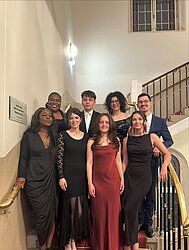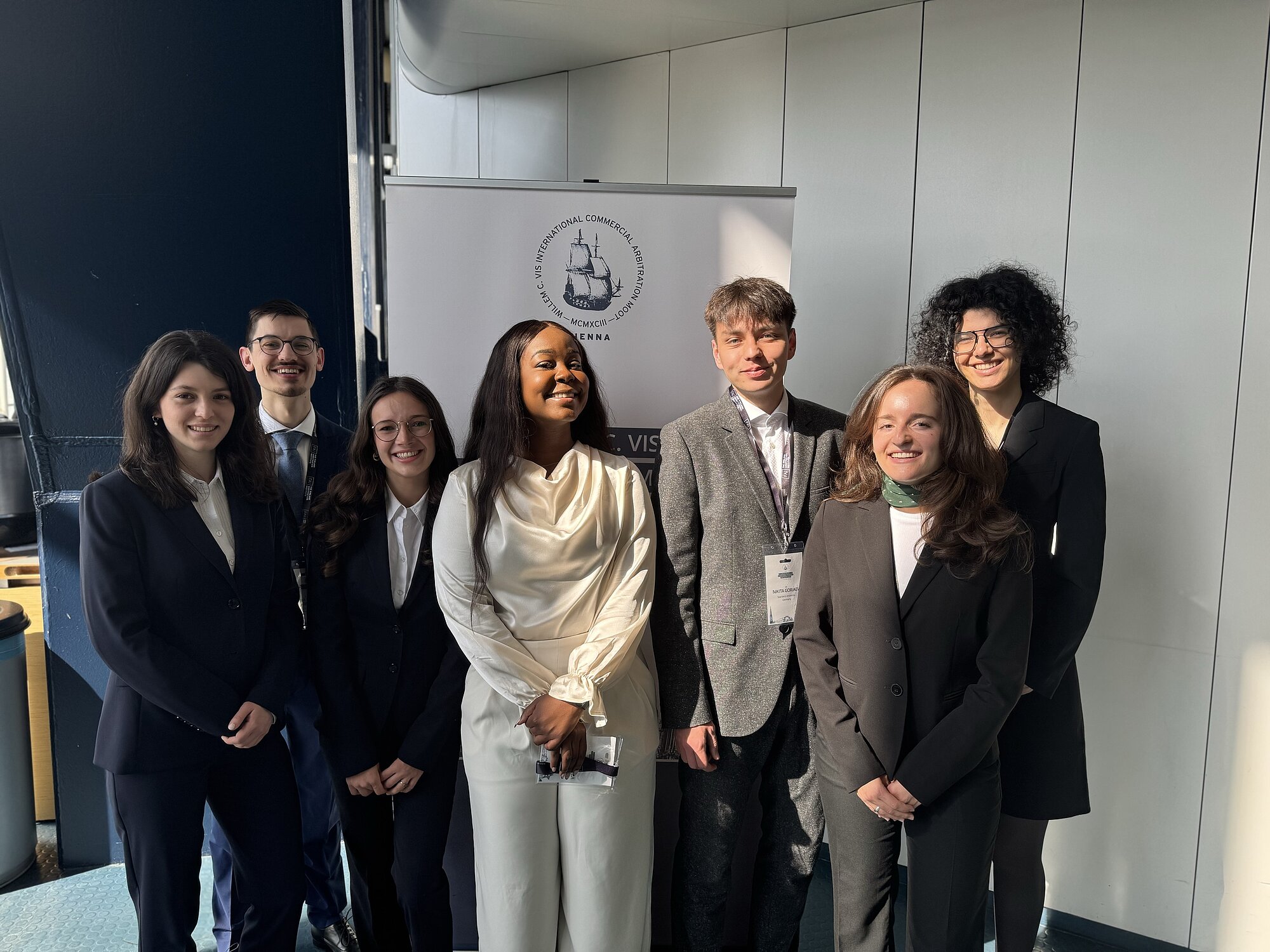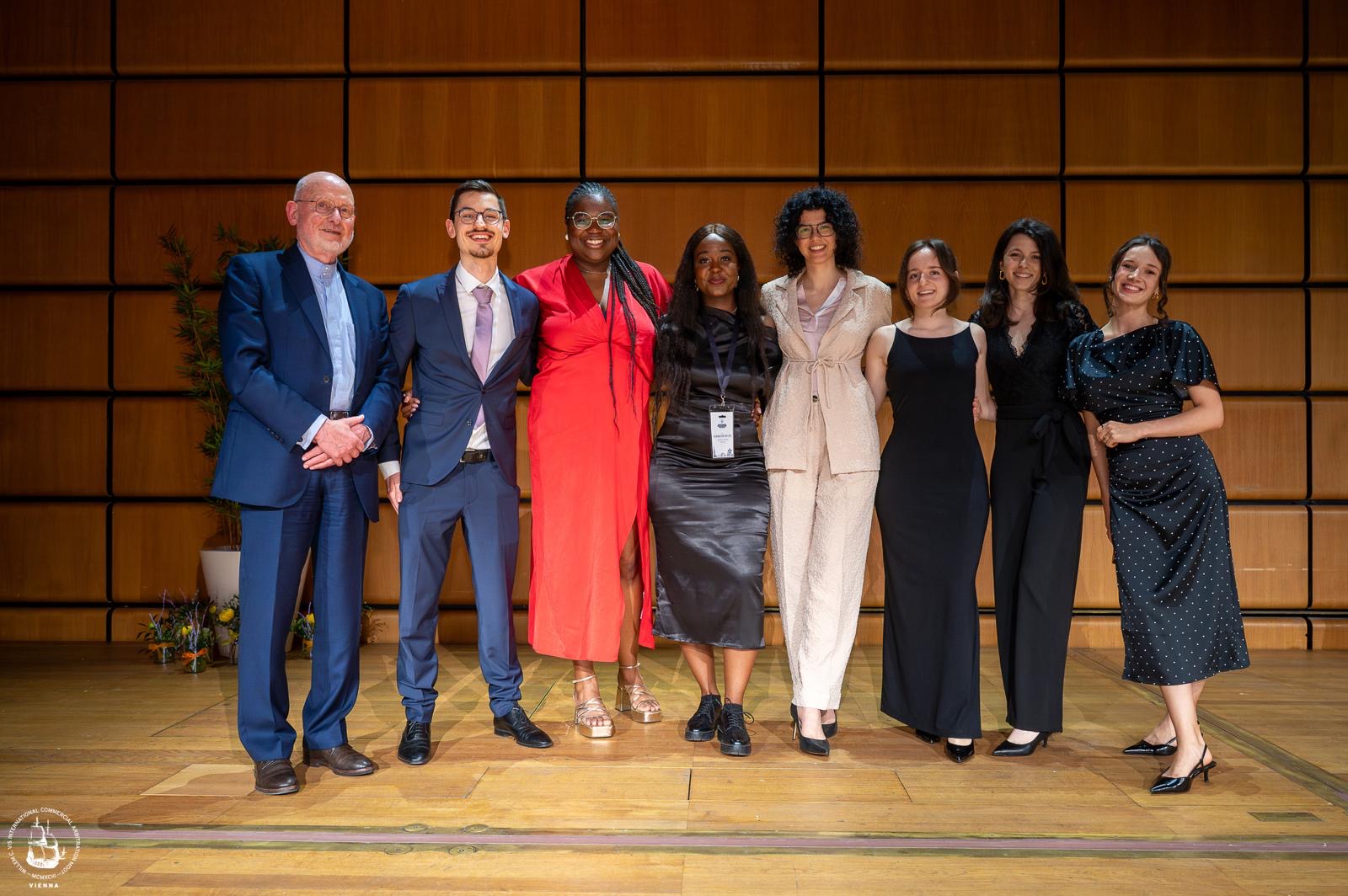
The Vis Moot Court in Vienna is organized by the Association for the Organization and Promotion of the Willem C. Vis International Commercial Arbitration Moot in cooperation with UNCITRAL (United Nations Commission on International Trade Law), renowned arbitration institutions and the Faculty of Law in Vienna. Arbitrators of the competition are judges, lawyers and professors from all over the world. The aim of the Moot Court is to support the study of international civil and commercial law and dispute resolution for international business disputes through the concrete application of a problem.
During the competition on international sales law and arbitration law, which lasts over six months, the participants have to demonstrate very good research skills, excellent argumentation skills, a quick grasp of the issues and the ability to work in a team.
The students first work together on complex English pleadings, which are then presented to an international jury. Subsequently, the focus is on the presentation of polished and to the point speeches on the most important legal issues.
Mock trials, exercises and preparatory competitions for the Moot Court in Vienna are held regularly in the run-up to the event in various European cities. The team consists of both students from the Master's program at the Europa-Institut and students from the Faculty of Law at Saarland University. Master's program students, however, can only participate after completion of their studies at the Europa-Institut.
More information can be found on the website of the Vis Moot via https://www.vismoot.org/
32nd Vis Moot - the team brings home three awards
Once again, the team of Saarland University was very successful in this year's Vis Moot competition!
Starting in October 2024, the release of the moot problem once again kicked off six months of hard work and fun for the Saarland University team. The team members of the 32nd Vis Moot were Alyssa Luck, Jana Meyer, Lisa Vita Landes, Marie-Theres Bauer, Mika Tom Schieffer, and Nikita Goriaev. The team was under the continued supervision of Prof. emeritus Dr. Dr. h.c. mult Helmut Rüßmann, with the active support of coaches Elinam De Souza, LL.M., and Mrs. Eva Wingler.
The Moot Problem dealt with green hydrogen production, weighing the importance of the realization of green energy projects against the changing political interests of a state. The Claimant in this case sought for the performance of its contract concluded with the Respondent, a state-owned entity, to construct and deliver a green hydrogen plant (turnkey) and fulfil Respondent's government’s ambitious goal of decarbonizing energy production by 2040. This relief was sought after the Respondent had terminated the contract for the Claimant’s alleged breach of a contractual milestone and for convenience under its domestic law. The Claimant, on the other hand, insists that the termination was due to a change of government in Respondent’s country, Equatoriana, dispensing of their interest in green hydrogen and shifting political winds elsewhere. The procedural questions of the problem in this edition were governed by the Arbitration and Mediation rules of the Finnish Arbitration Institute. The students had to determine whether the parties had agreed in their contract to have mediation as a strict precondition to arbitration, making the arbitral claim premature and inadmissible. They also determined whether Exhibits C7 and R3 presented by the Claimant and Respondent respectively as evidence could be admitted into the arbitral proceedings. On the merits, the team had to answer the preliminary question of whether the Convention on the International Sale of Goods (CISG) would apply to the question of whether Respondent rightfully terminated the agreement, or whether parties excluded the CISG entirely in favor of Respondent’s domestic contract law. Tackling these issues from both the perspective of Claimant and Respondent in two written memoranda, the team engaged in fascinating discussions while training their writing and analytical skills.

From February to April 2025, the team pruned oral arguments on the same issues in preparation for the competition in Vienna. Pre-Moots in which the team participated were the Gleiss Lutz (Stuttgart), Osborne Clarke (Cologne), Herbert-Smith Freehills (Frankfurt), Bucharest, White & Case (Brussels) and Belgrade Pre-Moots. Notably at the White & Case competitive Pre-Moot, the team advanced to the elimination rounds and reached the quarterfinals of the Pre-Moot.
From April 11 to 18, 2025, the team, along with 383 other teams from all corners of the world, took part in the oral competition of the Vis Moot in Vienna. After four general rounds, Saarland University advanced to the elimination rounds for the top 64 teams, and subsequently finished in the round of 32, representing the top 8% worldwide. At the awards ceremony, the team received an honorable mention, the Eric. E. Bergsten award for this achievement. Two oralists, Alyssa Luck and Lisa Vita Landes also received Martin Domke Awards, honorable mentions reserved for the competition’s best oralists. A trifecta of wins for Saarland University!
For more information about the Vis Moot can be found on their website https://www.vismoot.org/.
Report by Elinam De Souza


